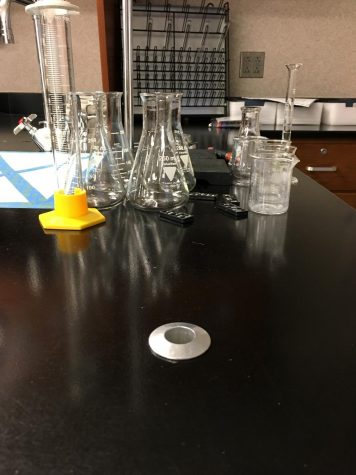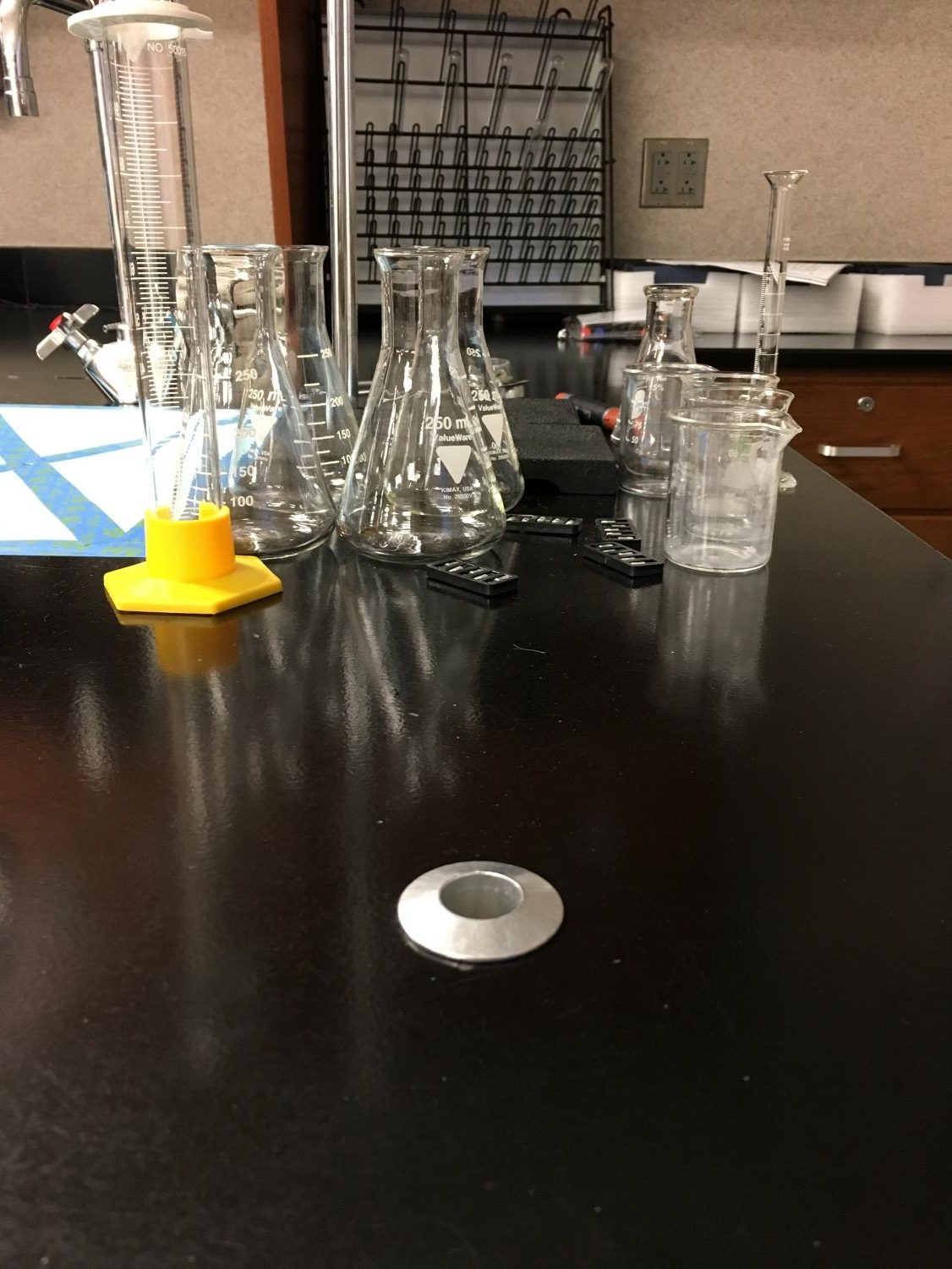Charger Guide to Surviving Chemistry Lab
Accidents minimized, occur occasionally
May 1, 2019
 There are certain classes everyone here at Carroll need to take. Whether it is math, English, history or science. Students have been studying these four core subjects for what seems like forever. Our school offers a few different options for science those options including biology, chemistry, physics, and many others.
There are certain classes everyone here at Carroll need to take. Whether it is math, English, history or science. Students have been studying these four core subjects for what seems like forever. Our school offers a few different options for science those options including biology, chemistry, physics, and many others.
A common occurrence in these science classes are lab experiments. Students will remember doing labs from dissecting a frog in middle school to making chemicals smoke and change colors in chemistry.
Usually during experiments nothing dangerous happens. It’s not impossible, just uncommon.
During her first year here, Mrs. Kristy Ewing was being evaluated by administration and a student broke a beaker and spilled chemicals all over the lab.
“I was mortified. Thankfully, the administrator didn’t even notice what happened!” Integrated Chemistry and Physics (ICP) teacher Mrs. Ewing said.
Of course, any teachers number one job besides educating students is to keep them safe, and labs add a whole no worry to that job. No teacher wants something to go kaboom and next thing you know they have a student with the ability to turn into a giant green rage monster.
Now it is also in the student’s hands to keep themselves safe. Here is the list of essentials to keeping you safe while doing a lab here at Carroll.
- Close-toed shoes
- Safety goggles
- No loose sleeves
- Long hair in front of the shoulders
- Glass can break when heated
- Fires are always a danger.
“If lab rules and safety procedures are not followed, it can become stressful and less meaningful for both students and teachers” said Mrs. Kuhn, chemistry teacher.
If students stick to these guidelines then the lab experience will be smooth. Of course, mistakes can still be a way for students to learn what not to do.
Recently in Mrs. Kuhn’s chemistry class, a fire started.
“I had to use the fire extinguisher and evacuate the room. It was stressful, but it was also a good opportunity to discuss lab safety rules and show students what needs to be done if there is a fire in lab.” said chemistry teacher Mrs. Kuhn.
Labs are great ways for students to learn with hands on experiences. But an important thing to remember while doing them is that teachers are trusting you with what could be dangerous materials.
Just remember if something goes wrong don’t be afraid to inform your teacher so they can fix it. Now go out and be a scientist. Make things bubble and spark and maybe desiccate an animal or two.
“My favorite part about labs is that it really allows students to interact with the concepts that we are learning about,” Mrs. Ewing said. “Many times, this is where students really engage, connect and remember what they’re learning.”
